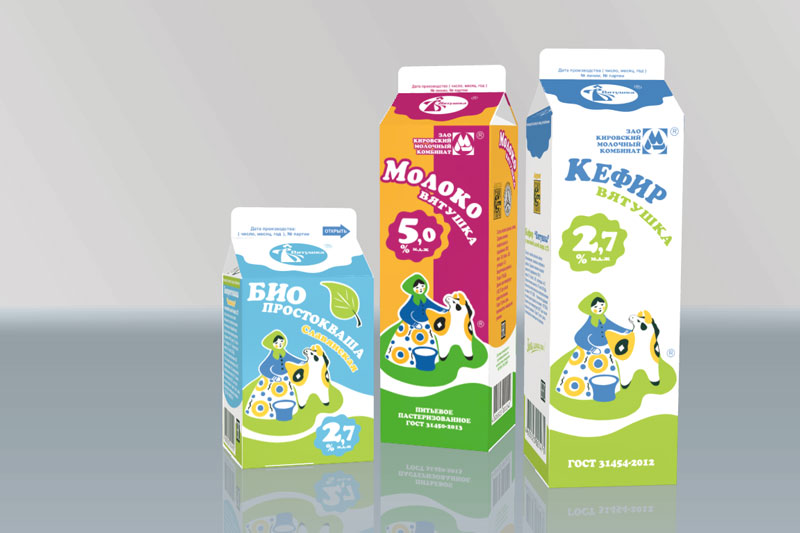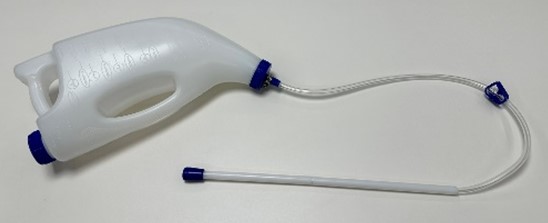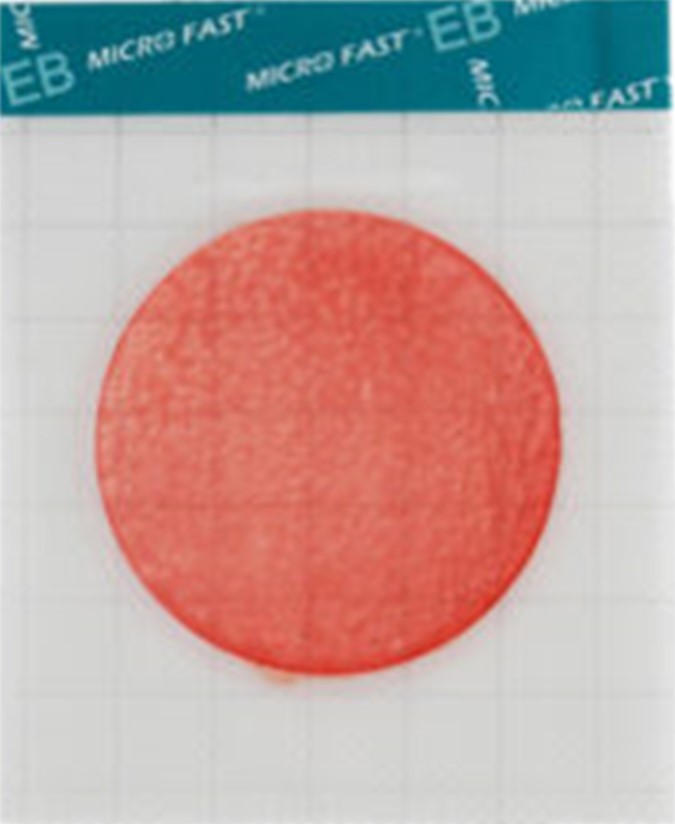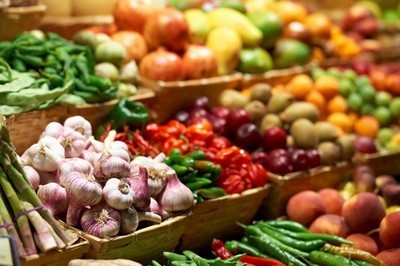President of Abrau-Durso - RBC: "The market is flooded with foreign wine"
On consumer sentiment in the use of ALCOHOL
About the price "downshifting" of Russian wine
Which countries are ready to buy wine from RUSSIA
How much should Russian wine cost
About the production of rum in the Caribbean and the Chinese market
Will Abrau-Durso be sold or hold an SPO
“We are not going to give up the “shelf”
- Do you think that the Abrau-Durso group has become the beneficiary of the withdrawal of many foreign alcohol brands from the Russian market?
Read PioneerProduct.by How online schools can overcome the toxic attitude of the audience "Closed chat": how to distinguish a high-class SMM specialist from a scammer Sales on the marketplace have stopped.What tool will ensure growth How the "toad" coin made a commotion in the crypto market - Fortune- Now hardly anyone can be called a beneficiary of the ongoing processes. However, the truth is that in the current crisis situation, all Russian winemakers found themselves in an advantageous position both because of the departure of some competitors and because of a new patriotic wave of consumption. And we looked at the results of last year with pleasant surprise. it seemed like it would be much more difficult.
There was less foreign sparkling wine, almost all deliveries of elite wines were canceled, and parallel imports could not quickly compensate for them. But we also see that many foreign players began to return at the end of last year - for example, Bacardi Martini is now almost fully represented. I do not know how they import their products, but the company is again actively investing in trade marketing.
By the time foreign products began to return, we had already managed to occupy a fairly large part of the retailer shelf, which was devastated in the first months after the start of the CBO. It was not the very fact of leaving that played into our hands, because few left in our subpremium segment: it was rather the logistical collapse that began to replace positions that were out of stock. Now foreign suppliers are returning, but we are not going to give up the “shelf”.
— What drives the growth in consumption of Russian wines more: patriotism or the fact that there are fewer, for example, French, Spanish and Italian products on the market?
- My subjective opinion is both. The market is now flooded with foreign wine: this is phenomenal, but in fact, Italy and Spain in the low price segment have even increased over the past year, which is why Russian wine producers in this category suffer.
What can you say about consumer sentiment now? For example, during the covid pandemic, there was an increase in shopping and interest in cocktails. Now everyone is buying foreignalcohol or maybe started drinking more?
- As with any “black swan” starting in Russia, in the first two or three weeks everyone ran to buy everything: TVs, cars, drinks, potatoes. We will not see such a March with absolutely record sales, when the alcohol shelves were empty. But then, compared to the first few months of covid, everything calmed down, and we had a smooth growth. Apparently, because no one canceled work this time, the people were busy all the time, and the increase in our share was due to the replacement of foreign products, additional patriotic impulses, but not because of the global trend towards increased consumption.
What is "Abrau-Durso"
The group produces sparkling wines Abrau-Dyurso, Abrau, Victor Dravigny and quiet Abrau, Vedernikov Winery. The company develops tourism at the Abrau-Dyurso Wine Tourism Center resort, restaurants and provides food delivery services, and last year it launched the Abrau Cosmetics cosmetic line. At the end of 2022, the company sold 54.171 million bottles (plus 18.06% by 2021), of which 52.857 million bottles of alcoholic and non-alcoholic products were produced by its own production (plus 18.5%). The group's revenue over the past year increased by 22.35%, to 12.076 billion rubles, EBITDA - by 23.55%, to 3.625 billion rubles. The main owner of the group is the family of business ombudsman Boris Titov.
— Do you notice that consumers have started to buy cheaper wine and the average bill is decreasing?
- Invariably the largest segment - 250-500 rubles. per bottle, and we work mainly in the range of 400-1000 rubles. and we absolutely dominate. There is a theory of crisis category downshifting, but it rather works in the vein of “I wanted a car - I didn’t buy it, but I went on vacation”, “I wanted to go on vacation - it didn’t work out, I sat down at home in the kitchen with a bottle of sparkling wine ” . There are few changes in purchases in price segments. If the lion's share of our foreign colleagues remained, everything would not be very successful for them because of the exchange rate difference. “Downshifting” on Russian wine occurred due to the fact that it has become more affordable against the background of the absence of problems with logistics.
“It was a shame to lose positions in global duty free”
— How many EXPORT countries do you have left?
— It’s hard to say exactly, everything changes very quickly: some countries have left, but new ones are coming. We have halved our exports in terms of supplies and in terms of money. The entire Western world has now ceased to be a market for us, we are left with Israel, CHINA and the countries of the EAEU .
It was a shame to lose positions in global duty free - we worked well with the Heinemann group, and now this is impossible. At first there was a problem with logistics, and then they said that they no longer needed our products. But we parted well, they warned in time.
- Was the American market a significant loss for you and did they immediately refuse supplies last year?
“With brilliant speed, they told us: “There will be no next shipment.” In fact, we did not have time to increase significant volumes there.
Until 2014, Abrau-Durso was sold quite actively both in the States and in the UK , then everything stopped, and not by a ban, but, I would say, because of market sentiment. Therefore, we were surprised that there were daredevils in the usa who came to us to try the products and decided to resume deliveries. And even then I told the partners: “Listen, this is not an obvious story, let's move slowly.” The emotional perception of Russian products by that time was more related to the Russian diaspora. We were right to be careful, so we didn't get any major problems.
- In the last year and a half, there have been significant migration processes, a significant part of your audience has moved to Georgia, Kazakhstan , Armenia, and many businesses have begun to follow these consumers. Do you have any plans to follow in this direction?
— We have never considered that it is worth targeting only the Russian-speaking diaspora — it is quite risky. One way or another, Abrau-Durso is a nostalgic brand, but often the audience of the community is not so huge.
We worked closely with Germany, which has a whole system for the sale of domestic products - large "Russian" supermarkets, but it is also aimed not only at consumers from the former CIS countries. There is a similar Israeli market in this sense.
When launching a brand on a new market, we make big investments , carry out serious marketing campaigns, and this, if we aim only at the Russian-speaking audience, may not be justified. Increased demand from these consumers is more of a "icing on the cake" than a distribution and marketing strategy. Therefore, the goal is always to expand the global presence, and not to catch up with every compatriot, wherever he lives or vacations.
Pavel Titov (Photo: Andrey Lyubimov / RBC)Andrey Lyubimov / RBC)
— Did many Russian wine producers really stop investing in discounts after the start of the mass exodus of foreign players from the market, did you do the same and will you resume them this year?
— Of course, we stopped promotional campaigns last year. They saw no reason why we should now spend quite serious money on seasonal and non-seasonal discounts. And they did not see much need at all for mass marketing tools for the last quarter and a half. We understood that we would already have increased demand, products could sell well without any interference.
However, now the picture is different, for this year we have planned a lot of marketing activities in the amount of pre-Covid years. We recognize that competitors will return and that purchasing power is decreasing, so a little more motivation is needed to make a purchase. Plus, we will invest not so much in our traditional products, wine, but also in a new expanded portfolio in other categories: spirits, non- and low-alcohol positions.
“There are no more grapes in Russia yet”
- Often during the discussion of Russian wine, doubts are expressed about the correctness of its pricing: on the one hand, that a product in the category of 300-400 rubles. it’s scary to drink for a bottle, and the other extreme is wine, which costs 5-6 thousand rubles. per bottle, overpriced. How much, in your opinion, should Russian wine cost in order for it to become a mass consumer product?
— We are currently discussing this issue closely with our colleagues in the industry, because there is an unhealthy situation on the market with the fact that in the cheap segment the market is flooded with Spanish and other foreign wines. I think that the price niche is from 500 to 800 rubles. very good for Russian winemaking. Of course, there is no limit to perfection, but such a range allows you not to use all sorts of tricks to underestimate the cost and produce an affordable product. Everything that is much lower in price raises doubts about the quality, there are no fairy tales.
— Why do you want to expand your product portfolio? Recently, you have launched several brands at once, including vodka, gin and rum.
- In Russia, there are no more grapes yet, we have limited opportunities, we are always in a small natural shortage of raw materials, and it will only increase. At the same time, we have the potential for organic growth — we can reload our Abrau-Dyurso umbrella brand. Now we are going rather not along the path of the manufacturer, but of the brand house. While we do the lion's share of what we sell, but we can not stop there, there are a lot of outsourcing productions.
- Will most of the production of new categories of drinks be in Russia?
- Gins, tinctures, vodka - everything that can be produced here, we produce in Russia. In general, you can make both cognacs and brandy, if you don’t go into the first price segment, which requires completely different volumes of brown spirits, which are not available in the country and have to be imported from abroad.
It is difficult to produce rum in Russia, it is produced in one of the countries of the Caribbean. This is a contract with one of the big manufacturers on the market. There is also the Azerbaijani part of production, it is unlikely that we will ever make Agdam port wine in Russia, and we also have extensive development plans there, and not only in wine.
Pavel Titov (Photo: Andrey Lyubimov / RBC)Andrey Lyubimov / RBC)
- Everything that will be produced outside of Russia, will these products be oriented to sales on the local market, or will you try to position these brands as independent of the country?
— We do not advertise that the production customer is a Russian group of companies, but we do not hide it either. In those markets where we expect to supply products, we are not afraid of their Russian origin.
In some markets, on the contrary, there is additional interest in domestic products. For example, in China, but, unfortunately, there is another difficulty: the sparkling wine market is small and does not grow at all - 12 million bottles over the past six years, what kind of volume is this? But China can be a good platform for new products.
The Chinese market is not easy, and it only seems that everything is flying off the wheels. The cost of marketing is going through the roof, the people of China have a rather specific taste in wines, and if they buy foreign wine, then from those countries that are considered to be traditionally wine-producing - France, Italy, at best Chile. The content of the bottle is not so much important as the popularity of the brand. And if you do not take into account premium wines and those that are consumed only by young people in two or three provinces, the habits of Chinese consumers, especially in the middle and lower price segments, are very conservative - this is beerand baijiu (strong alcoholic drink. -). We have already made bumps there and are revising our strategy towards strong and non-alcoholic drinks. We were also surprised to find that cider and, in general, Russian apples are in trend there.
“We would like to get more opportunities to sell wine on the Internet”
— How do you feel about how the experiment on online sales of alcohol will go from the point of view of regulation and the fact that Russian Post will become the only sales platform and logistics operator?
— We would like to get more opportunities to sell wine on the Internet. But, given the fairly large opposition from the Ministry of HEALTH, Rospotrebnadzor, in a sense, law enforcement agencies, the experiment became an intermediate option to prove that this does not contribute to the alcoholization of the population. Yes, probably, in some ways the state is acting with caution, and the Russian Post is an understandable and controlled delivery channel.
We would like marketplaces to be connected in some form at this stage, simply because Russian Post is a delivery channel, not sales. In fact, let's be honest, there is no problem to buy alcohol illegally on the Internet now, and the only ones who do not sell it there are real producers.
Therefore, we believe that the entry into this market of players with a high technological base, like marketplaces, will greatly clean up the online wine sales market. Even if marketplaces work in combination with Russian Post, it can work.
When do you expect the bill to be passed?
- This year. Now there will be an introduction, I think that it will be considered already in the autumn session. The document has been finalized for several years, and it contains fairly broad definitions that allow you to actively improve and improve it in the process of going through the experimental phase.
- After a while, how would you now assess the effects of the adoption of the law on winemaking? (The wine industry received independent regulation only in 2019. -)
- He certainly made the industry more transparent, now it is difficult at the moment to increase your harvest from non-existent vineyards, since there is control from the SRO. But there are also areas for growth, for example, we have a geographical classification, but it will become useful when the reputation of the terroirs appears. We understand what kind of wine, where it comes from, the names have been protected, now it’s up to a small thing, although in fact a big one – so that our territories of the ZNMP and PGI become famous, so that these wines are hunted like European ones.
Pavel Titov (Photo: Andrey Lyubimov / RBC)Andrey Lyubimov / RBC)
— What do Russian winemakers need to do to achieve this?
“ Wine is good to make and put on the market at reasonable prices.
- Do you expect that in the coming years you will be as independent as possible from third-party grape raw materials?
- In the current situation, we have no forecast for the next two weeks, to be honest. But if we plant at the same pace, then we still need seven years, probably. We have quite ambitious plans for this year - 444 hectares, and this is a large amount of work. The pace of planting also depends on the availability of seedlings and market conditions. If we see any dramatic changes in consumption, we can adjust our plans.
In fact, not a single large wine-making company works exclusively on its own raw materials, not only in Russia, but in general in the world. And rightly so, because you can alternate and reduce risks in this way.
Our comfortable position is to be 70% self-sufficient, leaving 30% of raw materials behind the market. But even with these 30%, Abrau-Durso will be a key buyer of grapes in Russia.
“No one takes away the previously received awards and medals”
— You communicated a lot and attracted foreign experts: what does your interaction look like now and how does the international wine community perceive you?
— Our chief oenologist Georges Blanc has been with us for seven years. Here, in Abrau-Durso, he sees opportunities for realizing professional ambitions. He is a man with a great track record: he worked at Moёt & Chandon, launched sparkling and still wines in the New World, but working in an international corporation does not always provide an opportunity to achieve personal fame. And we do not have such a regulated market as, say, in Champagne, with the most severe rules, methodology and four types of grapes for production. We are at the stage of formation and we can create and break traditions.
We did not participate in international competitions last year. It is difficult logistically, and no one is particularly waiting for us there, they clearly make it clear to us, saying: “We will not consider your wines at the moment.” It's sad, but, thank God, we managed to work before that and no one takes away the awards and medals received earlier.
We have just begun to show ourselves on the big wine arena, and I am afraid that during the years that the world will reject Russian wines and Russia in general, all this work and reputational achievements will be forgotten and lost.
Pavel Titov (Photo: Andrey Lyubimov / RBC)Andrey Lyubimov / RBC)
— Speaking about international cooperation and taking into account the difficulties with grape seedlings in Russia, could you tell us what is happening now with their supplies?
- So far, deliveries are going on, but with great difficulties. There are problems with making payments, but here we are not unique. This year, everything that we wanted to buy has been purchased, and our own nursery for 2.5 million vaccinations is also ready. But in general, this problem is underestimated neither by the industry nor by regulators.
The actual impossibility of planting foreign seedlings has led to a deep shortage of planting material. Russia is able to produce only one quarter of the required volume of the annual backfill. And this is only if we talk about the number of seedlings, the problems are much deeper in terms of varieties and quality of seedlings.
In the future, the industry may have great difficulties in breeding work. It is unlikely that we will ever be able to abandon European varieties. We will not be able to make sparkling wine only from “citron magarach” and “Amur Potapenko”. Therefore, it is necessary to radically increase the support of scientific institutions, because selection is not the work of commercial nurseries. And there are not very many commercial nurseries, only large groups: we, Fanagoria, Kuban-Vino, still have them in Crimea. If we want to fulfill the program set for us by the Ministry of Agriculture, we will need significant state support in creating nurseries for general use, and not just for the needs of individual wineries!
— How has the cost of the finished product changed for you over the past year?
— Apart from liquids, by an average of 10-12%, but some positions have grown significantly. And here we are not always talking about the components of the bottle, but the rise in the cost of purchasing parts, repairing equipment and logistics is strongly reflected in the cost. Now the replacement of any mechanisms needs to be planned for tens of months, and in this sense we are exposed to some risks: what if something breaks and we will not be able to fix it. Of course, you can always switch to other lines, turn some into donors, but this is all unpleasant.
— Do you notice that now, on the wave of interest in Russian winemaking, a lot of additional investments are coming to the industry?
— We see increased interest, we are even asked from time to time what can be bought, but I would not say that investments have increased, just the trend continues.
- Have you been offered to sell Abrau-Durso or a share in the company?
We don't have such plans. We have never really counted on external investors, and we have no problems with financing, our priority now is simply to increase the area of our vineyards.
— Information periodically appears on the market that you are planning an SPO and that you have recently registered a bond issue. It was planned that these funds would be used for M&A transactions, are you looking at any assets now?
- We do not see them yet, all systemic large assets have already changed owners, including the privatization of companies in the Crimea and our purchase of Yubileinaya. What's left? Is it to buy disparate 100-200 hectares? And how to control them? It is easier for us to increase our capacities. We do not see market conditions for placement now, recent practice has shown that IPO and SPO are “50/50” in terms of success. On the one hand, it would seem that there is nowhere to “park” money, but I do not see big wins in primary and secondary offerings.
In addition, our average cost of financing is 7.2–7.5%. Where can we find it on the market? We did the bond program partly as an exercise in corporate governance. And if there is an opportunity for some possible acquisitions, it is rather for the need for a quick reaction.
— What legislative initiatives for the further development of the wine industry, in addition to online trading, do you consider the most important at the moment?
- The largest and global issue is the expected amendments to the laws that will allow the construction of tourism infrastructure on vineyards. Of course, they must be approached very responsibly so as not to lose priorities in winemaking. However, this is what enotourism is about - you cannot have vineyards apart from a winery and a hotel. Most likely, these amendments will be submitted for consideration in the fall. The second issue is the resolution of advertising, the topic is endless, but so far there has been no progress. Although this is very important for medium and small winemakers. I assume that the solution to the problem can go to the regulators of the regional authorities, they are very reverent and pay great attention to it. The third issue is the urgent launch of a pilot project for online sales. The fourth is state support for the creation of nurseries.
Pavel Titov (Photo: Andrey Lyubimov / RBC)Andrey Lyubimov / RBC)
- How did the tourist season start in general, how does the closed sky affect it?
- The beginning of the season is not going very well, but not because of the impossibility of flying. Have you seen what the weather was like in May? So-so. An interesting effect: earlier, no one would have canceled a flight because of bad weather, but now people looked at the forecast and simply didn’t get into the car and didn’t come. But our Hotel Imperial is still fully booked. There is, of course, a decrease in turnover for excursions, shops, but not much compared to last year. Of course, during the peak season it will be extremely difficult without air traffic, and the situation with traffic congestion will worsen.
- In one of your recent interviews, you said that you do not consider your restaurant business as a commercial story. Why?
- We are not professionals in the restaurant business, and for us, of course, this is, first of all, the opportunity to organize "embassies" of "Abrau-Durso" in key cities, for example, in Siberia. No, I do not rule out that some points will be highly profitable. And they already are. But in the economy of the entire group, they will not become the core.
A store plus restaurant format, like our 1870 Abrau Durso, has proven to be very interesting to consumers and customers. But every city is a different story. And where professional restaurant groups would prefer not to open, it is important for us to be - we need representation.
- What share of revenue will be occupied in the coming years by products not related to winemaking - tourism, restaurant business?
— We expect that every year our alternative portfolio will take a larger and larger share in the revenue structure. Now non-wine products account for about 10% of the portfolio. In the future, we would like the figure to reach 30-35%. The contribution of tourism and HoReCa is about 1.5 billion rubles. This is not a huge figure, but in the context of a group of companies, it cannot be very large. But we see potential for significant growth here as well.
Five factors about Pavel Titov
March 19, 1984 - was born in Moscow.
He was educated at London's Cass Business School and worked in banking for several years, including at Merrill Lynch and ABN AMRO.
Since 2009, he began working in the structure of his father, Boris Titov, SVL Group (since 2006, this company began to buy out the Abrau-Dyurso alcohol holding).
Since 2011, he has been on the board of directors of Abrau-Dyurso, and in 2015 he became president of the alcohol holding.
Together with his father, in February 2023, he was included in the UK sanctions list.





























































